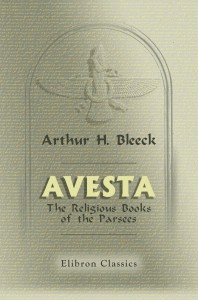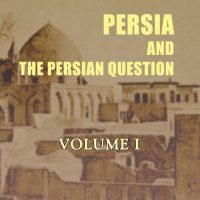Product Description
The texts of the Avesta — which were all in the Avestan language — were composed over the course of several hundred years. The sacred books of Parsees, or Zoroastrians, and the main source of our knowledge concerning the religious and spiritual life the ancient Persians. This collection of writings occupies the same place in the literature of Iran (ancient Persia) that the Vedas do in India. The designation Zend-Avesta, which is often employed to denote the sacred code, is not strictly correct. It owes its origin to a mistaken inversion of the Pahlavi designation Avistak u Zand, a term which probably means “Text and Commentary”; for the word Zand (in the Avesta itself, Zainti) signifies “explanation” and even in the Avesta is applied to the exegetical matter in the text. It is similarly used by the Parsee priests to denote the Pahlavi version and commentary, but not the original scriptures. Whether the term Avistak, which is the Pahlavi form of the word Avesta, has the meaning of “text”, “law”, is not absolutely certain. Some scholars interpret it as “wisdom”, “knowledge”.






Reviews
There are no reviews yet.